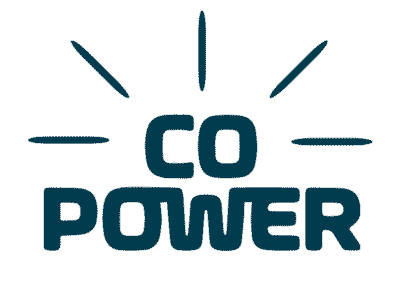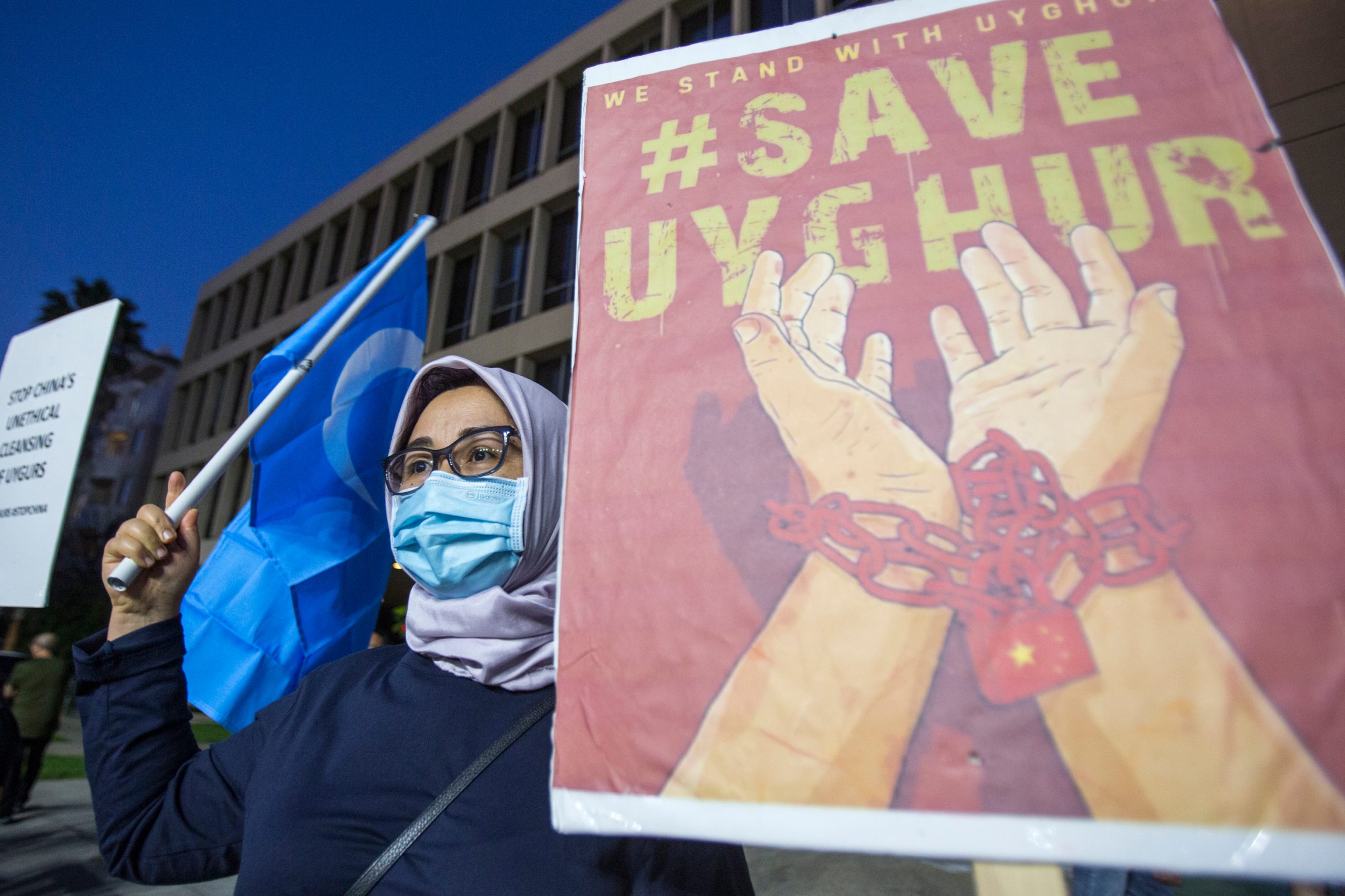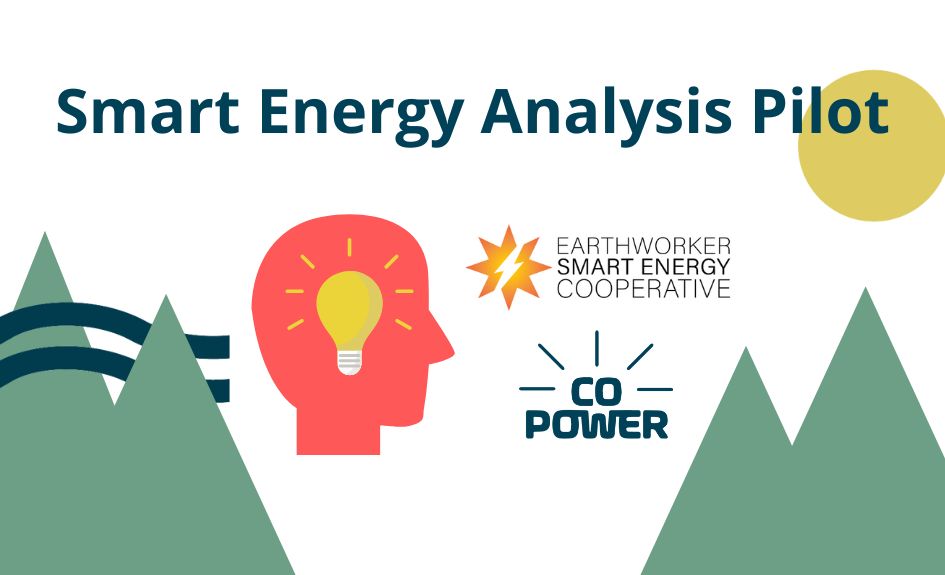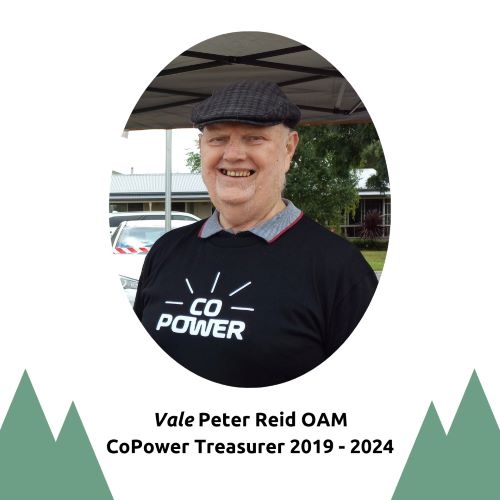Combating modern slavery in the solar panel supply chain

Frontline workers are taking the power back
December 14, 2023
Resilient farming communities in Timor Leste
December 20, 2023By Mark Zirnsak, CoPower customer member and Uniting Church Senior Social Justice Advocate.
At the November AGM of CoPower, members adopted a resolution brought by the Uniting Church in Australia, Synod of Victoria and Tasmania that:
While recognising that the need to act on climate change cannot be delayed, CoPower will support calls for the development of renewable energy production to respect human rights and environmental protection, including the need to develop solar panel supply chains that are free of forced labour. CoPower will refrain from supporting calls for the fast development of renewable energy unless the calls also acknowledge the need to end human rights abuses in renewable energy production.
The neoliberal economic system leaves us caught between the pressing necessity to act on climate change, which cannot be delayed, and an increasing reliance on severe human rights abuses through the international solar panel supply chain that taints the shift to renewable energy. Australia can be a renewable energy powerhouse. We must develop sovereign manufacturing capacity and exert all possible pressure to ensure that human rights are respected through the international supply chain.
In May 2021, the Helena Kennedy Centre for International Justice at Sheffield Hallam University published a report on the use of forced labour in the production of solar panels in China. [1] The 2021 report revealed how forced labour in the Uyghur Region can permeate an entire supply chain and reach deep into international markets. The researchers concluded that the solar industry was particularly vulnerable to forced labour in the Xinjiang Uyghur Autonomous Region (XUAR) because:
- Polysilicon manufacturers in the XUAR account for approximately 45% of the world’s solar-grade polysilicon supply (which their 2023 report has revised down to 35%)[2];
- All polysilicon manufacturers in the XUAR have reported their participation in labour transfer programmes. Labour transfer programmes transfer workers subjected to forced labour out of the XUAR to work in other parts of China.
- Forced labour of ethnic minorities in China, including Uyghur people, can involve people being abducted and moved to factories a long way from their families. They can be paid minimal wages or receive no pay at all. Attempts to leave the work they have been placed in can result in imprisonment in detention camps.
China now produces 80% of all parts of solar panel systems. The Clean Energy Council has pointed out that some experts have estimated that 95% of every silicon-based solar panel on the market will likely contain some element of Xinjiang polysilicon.[3] The International Energy Agency (IEA) has expressed concern that China’s dominance in the production of solar systems poses a risk to the investment needed to expand the solar panel industry further.
The Uniting Church has conducted extensive work to try to find a solar panel supply chain with minimal risk of modern slavery being present. There are limited options. The work by the Uniting Church points to most solar panel manufacturers collectively moving more of their supply chain into China despite public exposure of forced labour in Chinese solar supply chains. The driving factors in such a calculated reliance on human rights abuses are:
- Chinese solar products are the cheapest in the market;
- buyers throughout the supply chain, including the end purchasers, are willing to accept the flimsiest of assurances that modern slavery is not present in the supply chain and,
- There are no negative consequences to selling renewable products, and many other products as well, in Australia that have involved modern slavery in their production.
The focus on the transition to renewable energy being as cheap as possible in Australia is a mechanism to ensure that the real cost is passed on to people in other parts of the world being subjected to egregious human rights abuses. That said, an analysis by the Breakthrough Institute shows that the majority of production cost reduction in China has been based on legitimate technological advances and innovation in manufacturing. Chinese firms invested heavily in large, modern factories that have achieved high efficiencies of scale. The expansion was aided by substantial regional and national government support through direct subsidies, cheap land, and subsidised, affordable electricity.[4] They have stated that solar production in Xinjiang has also gained a competitive price advantage by relying on high emissions related electricity.[5]
Most solar businesses have increased opacity, making it nearly impossible for consumers, procurers, investors and governments to identify a solar module they can fully trust is not made with Uyghur forced labour.[6] Forced labour in Chinese supply chains is not confined to solar panel production. With the government’s approval, forced labour in China exists across a range of products.
It is impossible to address the risks of modern slavery in the production of goods out of China at the current time due to the endorsement and facilitation of forced labour by the Chinese regime. The regime’s involvement makes it impossible to conduct effective on-the-ground investigations to determine if forced labour is present in the production of certain goods. Investigators who have experience working in China have reported that any attempts at meaningful investigation of forced labour inside China are now treated as industrial espionage by the regime. The Clean Energy Council notes there have been reports of intimidation of audit firms that would seek to conduct due diligence into modern slavery risks in China.[7] Responses from Chinese suppliers cannot be relied upon as evidence that forced labour is not present in the production of goods. The absence of independent trade unions also hinders any independent verification that modern slavery is not present in the production of the goods in question.
The reliance on products produced with the involvement of forced labour from China is a choice. As the Clean Energy Council pointed out, in the early 2000s, Australia built and assembled solar modules and had the largest solar panel factory in the Southern hemisphere. However, production ceased in 2009 as the local manufacturer could not compete on price with Chinese production.[8]
The International Energy Agency estimates that solar PV capacity globally needs to more than quadruple by 2030 to be on track with the pathway to reach net zero emissions by 2050. The IEA has recommended that governments diversify their supply chains for solar systems rather than relying solely on China for production.There is good news, with the Commonwealth Government funding research towards developing an Australian solar industry.[9] However, the development of an Australian industry is still five to ten years away.
In the meantime, the solar panels that appear to have the lowest risk of modern slavery on the Australian market at the moment would appear to be those from a German company 1KOMMA5o. The company has stated that it sources the raw materials for its panels from Germany, but the panels are assembled in a factory in China.[10] The Uniting Church has yet been able to verify the accuracy of the company’s statement. Further, 1KOMMA5o has stated that it plans to build a factory in Germany to assemble the solar panels and hopes to have the first panels from the factory available by 2025.
The Australian company Tindo Solar, based in Adelaide, assembles its solar panels in its factory in Adelaide, but some of its raw materials are sourced from China. That said, it is probably a better choice than many other solar panel suppliers.
The US company First Solar manufactures solar photovoltaic (PV) modules with a thin film semiconductor technology that provides a lower-carbon alternative to conventional crystalline silicon PV solar modules. They have lower exposure to Chinese-sourced products in their supply chain but have disclosed that Chinese components are still in their supply chain. Further, they revealed in mid-2023 that forced labour had been associated with their manufacturing operation in Malaysia.[11]
[1] Laura T. Murphy and Nyrola Elima, ‘In Broad Daylight. Uyghur Forced Labour and Global Supply Chains’, Helena Kennedy Centre for International Justice, Sheffield Hallam University, May 2021.
[2] Alan Crawford and Laura Murphy, “Over-Exposed: Uyghur Region Exposure Assessment for Solar Industry Sourcing”, Sheffield Hallam University, Helena Kennedy Centre for International Justice, August 2023, 2.
[3] Ibid., 13.
[4] Seaver Wang and Juzel Lloyd, “Sins of a Solar Empire”, Breakthrough Institute, 2022, 2.
[5] Ibid., 4.
[6] Alan Crawford and Laura Murphy, “Over-Exposed: Uyghur Region Exposure Assessment for Solar Industry Sourcing”, Sheffield Hallam University, Helena Kennedy Centre for International Justice, August 2023, 1.
[7] Clean Energy Council and Norton Rose Fulbright, “Addressing Modern Slavery in the Clean Energy Sector”, November 2022, 16.
[8] Clean Energy Council and Norton Rose Fulbright, “Addressing Modern Slavery in the Clean Energy Sector”, November 2022, 13.
[9] Chris Bowen, “$45 million to power the next generation of solar research”, Media Release, 24 June 2022.
[10] Doing it ourselves, 1KOMMA5° providing you with peace of mind – Natural Solar
[11] First Solar, “Transparency in supply chains and Modern Slavery Statement”, June 2023.




